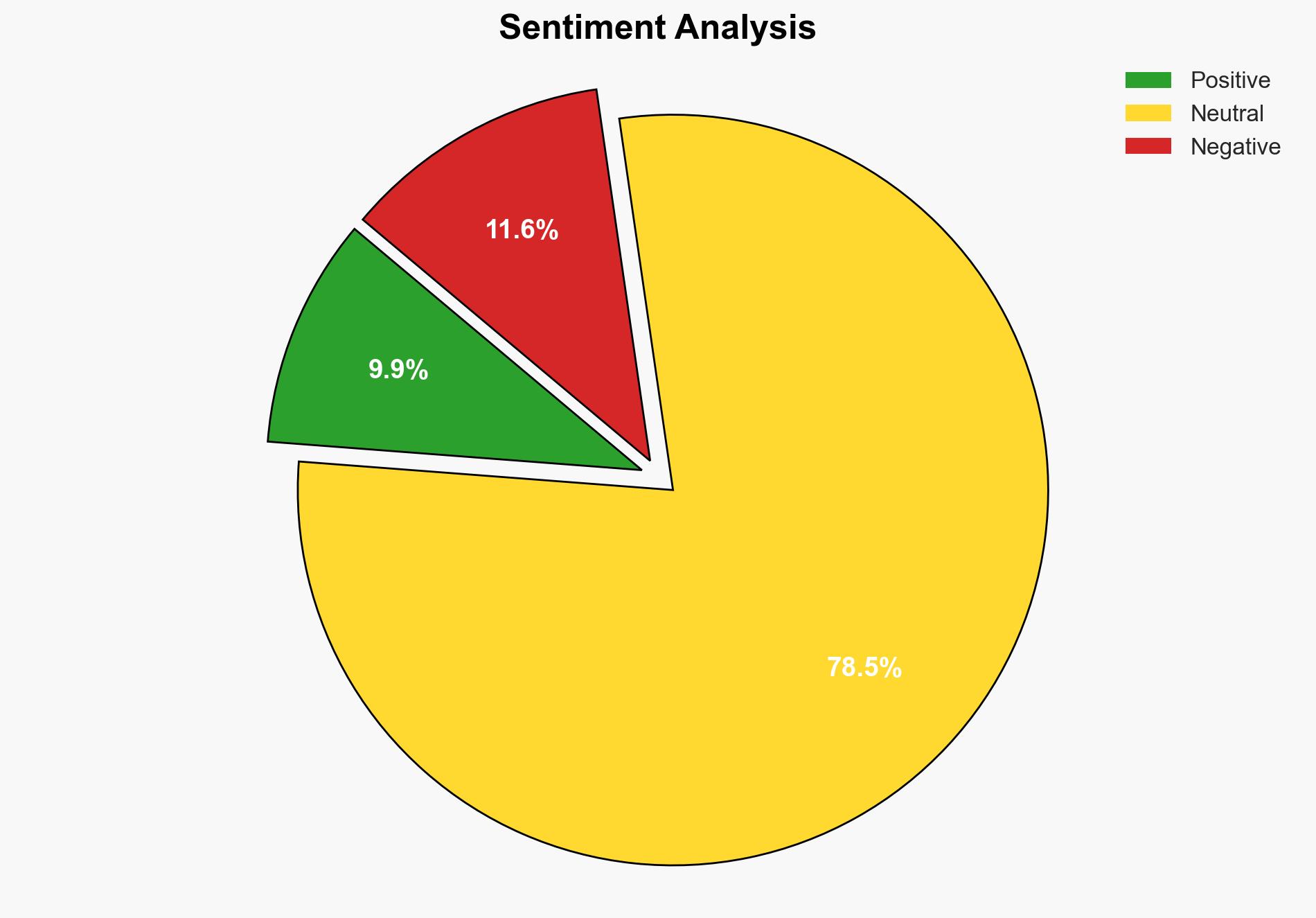US to Israel Don’t strike Houthis in Yemen ‘leave it to us’ – The Jerusalem Post
Published on: 2025-03-20
Intelligence Report: US to Israel Don’t strike Houthis in Yemen ‘leave it to us’ – The Jerusalem Post
1. BLUF (Bottom Line Up Front)
The United States has requested Israel to refrain from striking Houthi targets in Yemen, indicating that the US will handle the situation. This request follows recent missile launches from Yemen targeting Israel. The US has initiated air and naval strikes against Houthi positions, focusing on their radar, air defense, missile, and drone systems. The strategic aim is to de-escalate tensions and prevent further regional destabilization.
2. Detailed Analysis
The following structured analytic techniques have been applied for this analysis:
General Analysis
Recent missile attacks from Yemen targeting Israel have heightened tensions in the region. Israel’s air defense systems successfully intercepted these threats, but the potential for escalation remains high. The US intervention aims to neutralize Houthi capabilities and reduce the risk of further attacks. The involvement of Iran, as indicated by verbal messages to the Houthis, suggests a broader geopolitical dimension, with implications for US-Iran relations and regional alliances.
3. Implications and Strategic Risks
The ongoing conflict poses significant risks to regional stability, particularly concerning maritime security in the Red Sea and the safety of international shipping lanes. The involvement of major powers like the US and Iran increases the complexity of the situation, potentially affecting global oil markets and economic interests. The risk of miscalculation or unintended escalation remains a critical concern, with potential repercussions for national security and diplomatic relations.
4. Recommendations and Outlook
Recommendations:
- Encourage diplomatic engagement with regional stakeholders to de-escalate tensions and foster dialogue.
- Enhance maritime security measures to protect shipping lanes and prevent disruptions in global trade.
- Monitor developments closely and prepare contingency plans for potential escalation scenarios.
Outlook:
In the best-case scenario, diplomatic efforts succeed in reducing tensions, leading to a cessation of hostilities and stabilization of the region. The worst-case scenario involves further escalation, drawing in additional regional actors and exacerbating the conflict. The most likely outcome is a protracted period of tension with intermittent hostilities, requiring sustained international attention and intervention.
5. Key Individuals and Entities
The report mentions significant individuals and organizations, including Jamal Amer and unnamed senior Iranian officials. The involvement of these individuals highlights the complex network of alliances and interests influencing the situation in Yemen and the broader Middle East.





